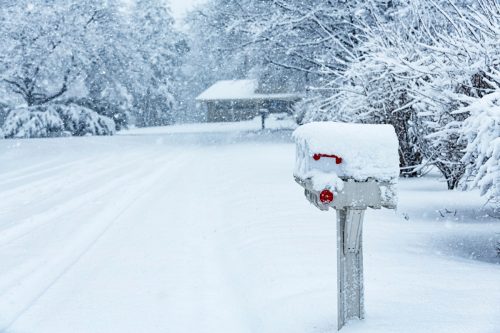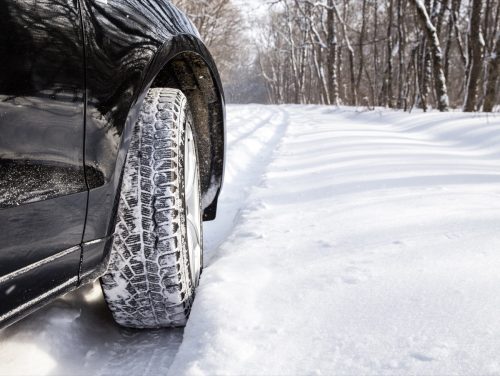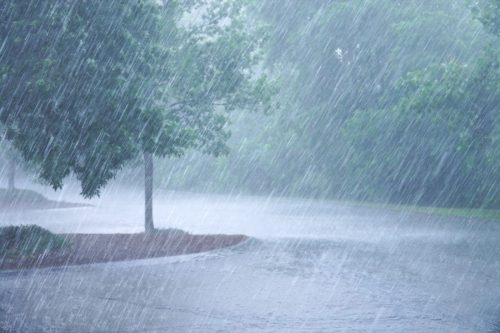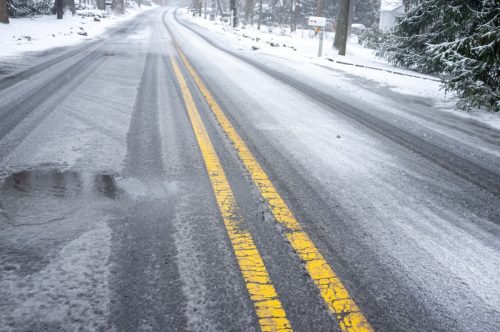Powerful “Kitchen Sink” Storm Hitting Next Week—What to Expect in Your Region

Love it or hate it, it’s winter here in the U.S.—and along with chillier temperatures, you can also expect snow and wintry mixes. This weekend, the eastern part of the country is bracing itself for Winter Storm Ember, which is expected to bring snow, ice, rain, and wind. Travel conditions may be dicey for those in this region on Saturday and Sunday, according to meteorologists with The Weather Channel, but if you’re anticipating being in the clear for the workweek ahead, think again. There’s another storm on the horizon, and this one is expected to bring “everything but the kitchen sink” to multiple U.S. regions, The Weather Channel Says.
“A few of us meteorologists at weather.com like to throw around the phrase ‘kitchen sink storm’ when a major system like that one checks the boxes for many hazards at once,” Chris Dolce, meteorologist with weather.com, said in a discussion posted on Weather Underground (part of The Weather Company, which owns The Weather Channel/weather.com).
He continued, “These storms occur in the cooler months of the year when the jet stream is more potent and able to generate strong areas of low pressure that can deliver a wide variety of weather conditions given the collision between milder air from the Gulf of Mexico and colder air seeping south from Canada.”
Meteorologists anticipate that this second storm, dubbed Winter Storm Finn, could actually be a “bigger deal” than Ember, largely because it will have a more widespread impact along the Mississippi River and east of it. Read on to find out what you can expect in your region.
RELATED: Major Winter Storm Hitting This Weekend—How Much Snow You’ll Get in Your Region.
The storm is starting in the West.

The Weather Channel notes that it’s still a bit early to predict the details of the storm’s impact across all regions, but it is starting in the West. Those in this region can expect snow and rain, with snow potentially affecting travel in valley and mountain locations, including Salt Lake City and Boise, Idaho, the outlet says.
As weather.com meteorologist Domenica Davis explained in an accompanying forecast video, Finn is following a similar path to Ember, but instead of moving off the West Coast, it is moving north, presenting a “potpourri of weather.”
RELATED: A “Polar Vortex” Is Expected to Hit the U.S. Soon—Here’s What to Know.
The Plains, the Midwest, and the Great Lakes should also expect snow.

“A stripe of snowfall” and strong winds are expected north of the storm’s path, per The Weather Channel, namely in the Central Plains into the Midwest and the Great Lakes. For those on the warm side of the storm, i.e. to the south, there’s a chance of heavy rain and winds.
Those in central states can expect peak impacts on Monday and Tuesday, potentially moving into Wednesday, The Weather Channel says.
RELATED: 10 Ways to Prepare Your Home for a Snowstorm, According to Experts.
The South will get severe storms.

Davis said the South could see strong storms, which are “the biggest concern.” The Weather Channel specifies that these storms are possible near the Gulf Coast during the day on Monday and into the evening.
On Tuesday, storms could move into the Southeast, with the possibility for “damaging winds, hail and some tornadoes.” Flooding could also result from the heavy rain expected in this region.
The Northeast should gear up for round two.

The Northeast isn’t getting a break after Winter Storm Ember, according to The Weather Channel. Heavy rainfall is predicted to affect the coast and the Interstate 95 corridor from Boston to Washington, D.C. “Interior areas” of the region are expected to see snowfall or wintry mixes that then turn to rain.
Much like central states, those in the East should expect to face the brunt of the storm on Monday, Tuesday, and potentially Wednesday.
On top of this, Davis pointed out that flooding is a concern for this region as well.
“Especially through parts of the Northeast where you had heavy snow and you see that rain coming in, that could create flooding,” she said in the forecast video.
Regardless of where you live, The Weather Channel stresses that you should pay attention to the latest forecasts, as the storm is likely to change in the coming days.
RELATED: How New “Extreme” Thunderstorms and Wind Are Increasing—And Affecting Where You Live.
Meteorologists also shared some “good news.”

In the discussion posted on Weather Underground, senior meteorologist at weather.com Linda Lam noted that there are some parts of the U.S. where weather will be moderate—at least for a little while.
“Much of Texas to the lower Mississippi Valley will have fairly pleasant conditions this weekend,” Lam said. “Dry weather is expected and temperatures will reach into the 50s and 60s. However, rain returns as early as Sunday night and portions of this area will need to be ready for the chance of severe thunderstorms on Monday.”
In the Northeast, Boston will have “milder air” and rain-free skies on Saturday before Ember, with the mid-Atlantic through the Carolinas also getting clear skies on Sunday and no “big-cold” air, weather.com digital meteorologist Jonathan Belles added.
RELATED: For more up-to-date information, sign up for our daily newsletter.